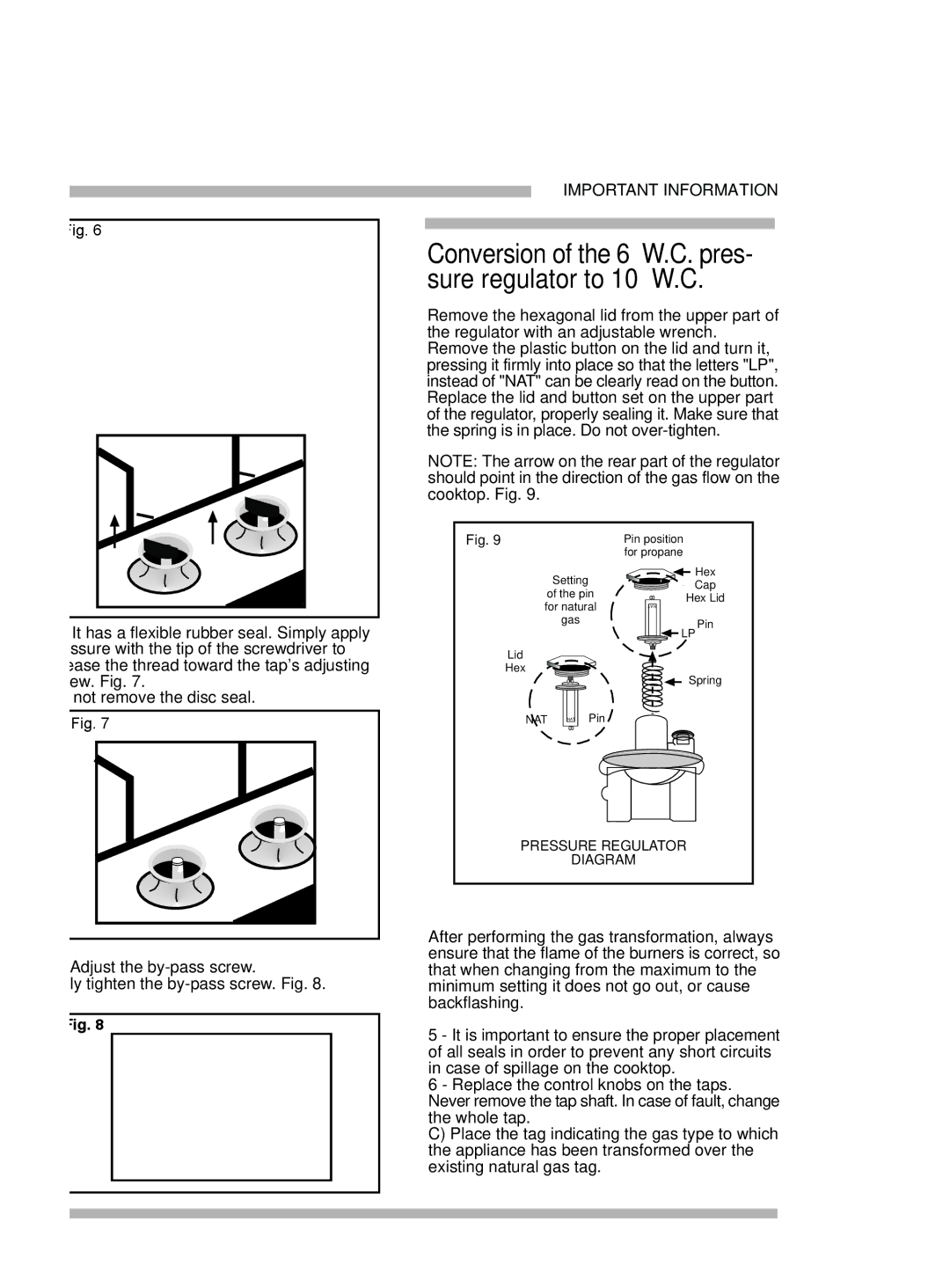
Fig. 6 |
3 - It has a flexible rubber seal. Simply apply pressure with the tip of the screwdriver to release the thread toward the tap's adjusting screw. Fig. 7.
Do not remove the disc seal.
Fig. 7 |
4 - Adjust the
Fully tighten the
Fig. 8
IMPORTANT INFORMATION
Conversion of the 6” W.C. pres- sure regulator to 10” W.C.
Remove the hexagonal lid from the upper part of the regulator with an adjustable wrench. Remove the plastic button on the lid and turn it, pressing it firmly into place so that the letters "LP", instead of "NAT" can be clearly read on the button. Replace the lid and button set on the upper part of the regulator, properly sealing it. Make sure that the spring is in place. Do not
NOTE: The arrow on the rear part of the regulator should point in the direction of the gas flow on the cooktop. Fig. 9.
Fig. 9 |
|
| Pin position | |
|
|
| for propane | |
| Setting |
| Hex | |
|
| Cap | ||
of the pin | ||||
Hex Lid | ||||
for natural | ||||
NAT | ||||
| gas |
| Pin | |
|
|
| LP | |
Lid |
|
|
| |
Hex |
|
| Spring | |
|
|
| ||
NAT | NAT | Pin |
| |
PRESSURE REGULATOR
DIAGRAM
After performing the gas transformation, always ensure that the flame of the burners is correct, so that when changing from the maximum to the minimum setting it does not go out, or cause backflashing.
5 - It is important to ensure the proper placement of all seals in order to prevent any short circuits in case of spillage on the cooktop.
6 - Replace the control knobs on the taps. Never remove the tap shaft. In case of fault, change the whole tap.
C)Place the tag indicating the gas type to which the appliance has been transformed over the
existing natural gas tag.
23
